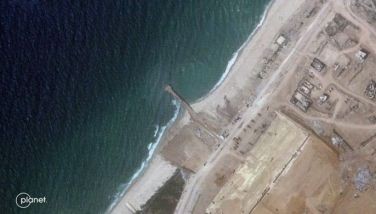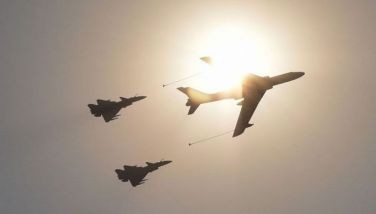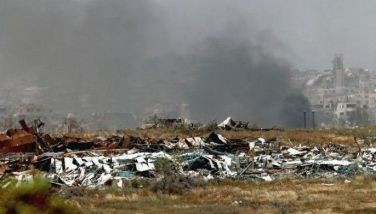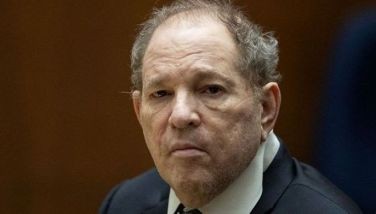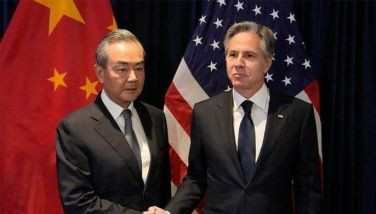North Korea fires long-range ballistic missile
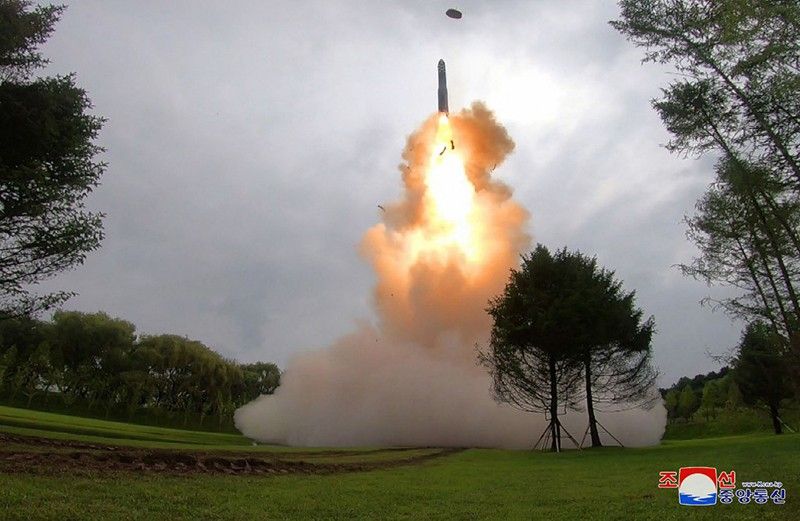
SEOUL, South Korea — North Korea has fired a long-range ballistic missile, the South Korean military said Wednesday, days after Pyongyang threatened to down US spy planes that violated its airspace.
Relations between the two Koreas are at one of their lowest points ever, with diplomacy stalled and North Korean leader Kim Jong Un calling for increased weapons development, including tactical nukes.
In response, Seoul and Washington have ramped up security cooperation, vowing that Pyongyang would face a nuclear response and the "end" of its current government were it to ever use its nuclear weapons against the allies.
South Korea's military said it had detected the launch of a long-range ballistic missile from the Pyongyang area around 10:00 am (0100 GMT).
"The ballistic missile was fired on a lofted trajectory and flew 1,000 km (620 miles) before splashing down in the East Sea," the Joint Chiefs of Staff said, referring to the body of water also known as the Sea of Japan.
A lofted trajectory involves firing a missile up and not out, a method Pyongyang has previously said it employs in some weapons tests to avoid flying over neighbouring countries.
The launch "is a grave provocation that damages the peace and security of the Korean peninsula" and violates United Nations sanctions on Pyongyang, the JCS said, calling on North Korea to stop such actions.
A spokesman for United Nations Secretary-General Antonio Guterres said the body was "very concerned" about the launch, while the United States and its allies, including France, also strongly condemned it.
"This launch is a brazen violation of multiple UN Security Council resolutions and needlessly raises tensions and risks destabilising the security situation in the region," US National Security Council spokesperson Adam Hodge said in a statement.
Pyongyang last fired one of its most powerful intercontinental ballistic missiles in April -- the purportedly solid-fuelled Hwasong-18 -- and in February launched a Hwasong-15, which flew a similar 989 kilometers.
The flight time of around 70 minutes is also similar to some of North Korea's previous ICBM launches, experts said.
"Given what we have at this point, it's about 90 percent certain that it was an ICBM launch," Choi Gi-il, a professor of military studies at Sangji University, told AFP.
He said it could also have been North Korea trying to re-test its satellite launch technology ahead of another attempt to put a spy satellite into orbit, after a May launch failed.
'Provocative' US actions
Wednesday's launch came after North Korea on Monday accused a US spy plane of violating its airspace and condemned Washington's plans to deploy a nuclear missile submarine near the Korean peninsula.
A spokesperson for the North Korean Ministry of National Defence said the United States had "intensified espionage activities beyond the wartime level", citing "provocative" spy plane flights over eight straight days this month.
"There is no guarantee that such shocking accident as downing of the US Air Force strategic reconnaissance plane will not happen in the East Sea of Korea," the spokesperson added.
Kim's powerful sister Kim Yo Jong said that a US spy aircraft had violated the country's eastern airspace twice on Monday, according to a separate statement.
Kim Yo Jong said North Korea would not respond directly to US reconnaissance activities outside of the country's exclusive economic zone, but warned it would take "decisive action" if its maritime military demarcation line was crossed.
The United States said in April that one of its nuclear-armed ballistic submarines would visit a South Korean port for the first time in decades, without specifying an exact date.
South Korean President Yoon Suk Yeol has ramped up defence cooperation with Washington in response, staging joint military exercises with advanced stealth jets and long-range heavy bombers.
Yoon is set to attend a NATO summit in Lithuania this week, seeking stronger cooperation over North Korea's growing threats.
Kim Yo Jong's bellicose statement "is part of a North Korean pattern of inflating external threats to rally domestic support and justify weapons tests," said Leif-Eric Easley, a professor at Ewha University in Seoul.
"Pyongyang also times its shows of force to disrupt what it perceives as diplomatic coordination against it, in this case, South Korea and Japan's leaders meeting during the NATO summit."
In Washington, NSC spokesperson Hodge called on North Korea "to come to the table for serious negotiations".
"The door has not closed on diplomacy, but Pyongyang must immediately cease its destabilising actions and instead choose diplomatic engagement," he said, stressing the United States will "take all necessary measures" to ensure its security and that of allies South Korea and Japan.
- Latest
- Trending












